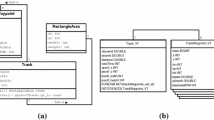Abstract.
We propose a new client-side data-caching scheme for relational databases with a central server and multiple clients. Data are loaded into each client cache based on queries executed on the central database at the server. These queries are used to form predicates that describe the cache contents. A subsequent query at the client may be satisfied in its local cache if we can determine that the query result is entirely contained in the cache. This issue is called cache completeness. A separate issue, cache currency, deals with the effect on client caches of updates committed at the central database. We examine the various performance tradeoffs and optimization issues involved in addressing the questions of cache currency and completeness using predicate descriptions and suggest solutions that promote good dynamic behavior. Lower query-response times, reduced message traffic, higher server throughput, and better scalability are some of the expected benefits of our approach over commonly used relational server-side and object ID-based or page-based client-side caching.
Similar content being viewed by others
Author information
Authors and Affiliations
Additional information
Edited by Henry F. Korth and Amith Sheth. Received November 1994 / Accepted April 21, 1995
Rights and permissions
About this article
Cite this article
Keller, A., Basu, J. A predicate-based caching scheme for client-server database architectures . The VLDB Journal 5, 35–47 (1996). https://doi.org/10.1007/s007780050014
Issue Date:
DOI: https://doi.org/10.1007/s007780050014




